At the invitation of the Technical University of Munich (TUM), Professor Tao Zhang paid a visit to TUM from June 14 to June 27, 2025. The visit featured a series of high-level academic interactions and collaborative discussions, markin-g a new chapter in scientific exchange between China and Germany in the field of catalysis.
During his visit, Prof. Zhang delivered a well-received academic lecture titled "Single-Atom Catalysis" to a group of TUM students. The talk sparked enthusiastic discussions and provided valuable insights into the frontiers of catalysis research.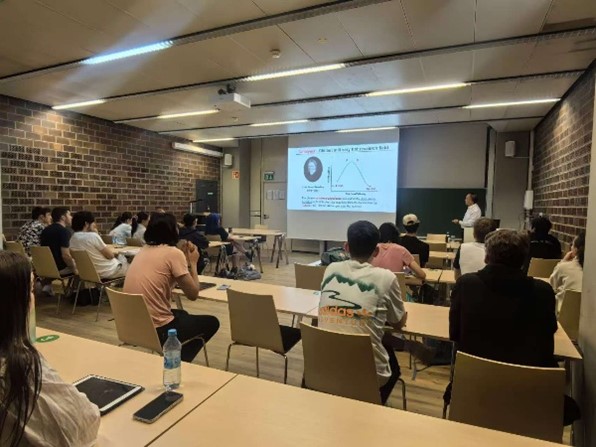
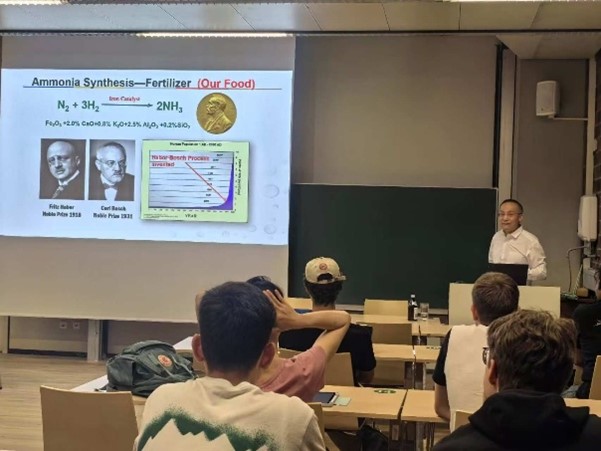
Prof. Zhang also met with several prominent scholars at TUM, including:

From left to right: Prof. Fritz E. Kühn, Prof. Tao Zhang, Prof. Thomas F. Hofmann.
Prof. Johannes A. Lercher, who is a Professor of Chemistry and member of the Catalysis Research Institute at the Technische Universität München as well as Director of the Institute for Integrated Catalysis at the Pacific Northwest National Laboratory, Richland, USA.
Prof. Fritz E. Kuehn, who is a Professor of Molecular Catalysis at TUM.

From left to right: Prof. Fritz E. Kuehn, Prof. Johannes A. Lercher, Prof. Tao Zhang, Associate Prof. Bo Zhang
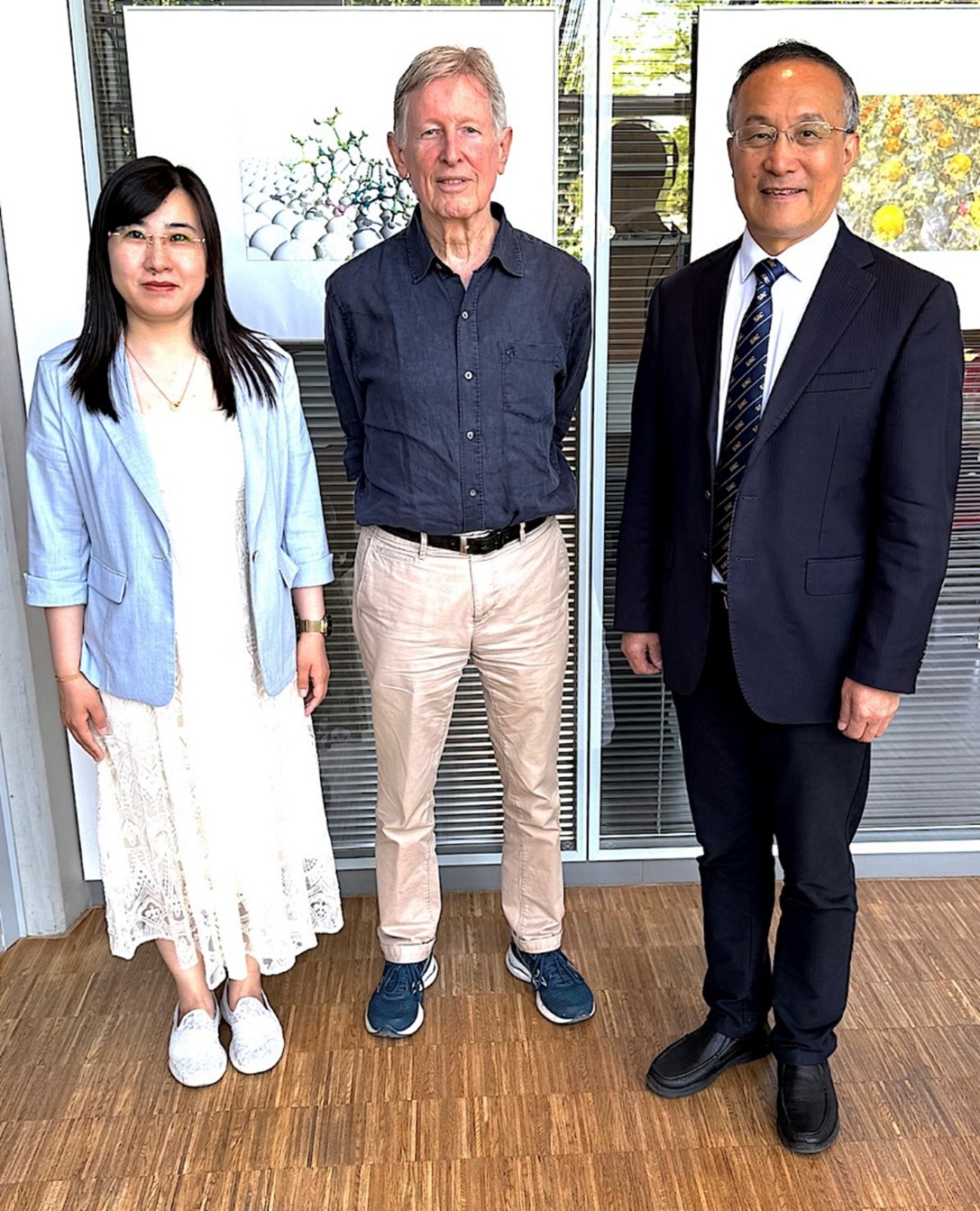
From left to right: Associate Prof. Bo Zhang, Prof. Michael Molls, Prof. Tao Zhang
From left to right: Prof. Roland Fischer, Prof. Tao Zhang.
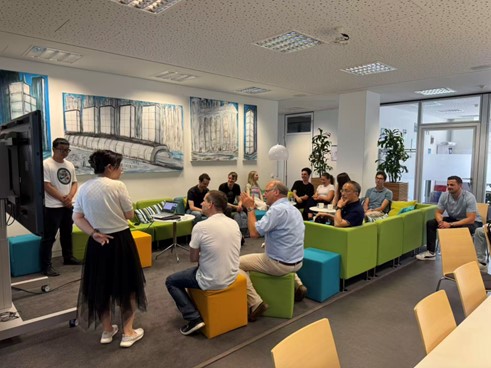
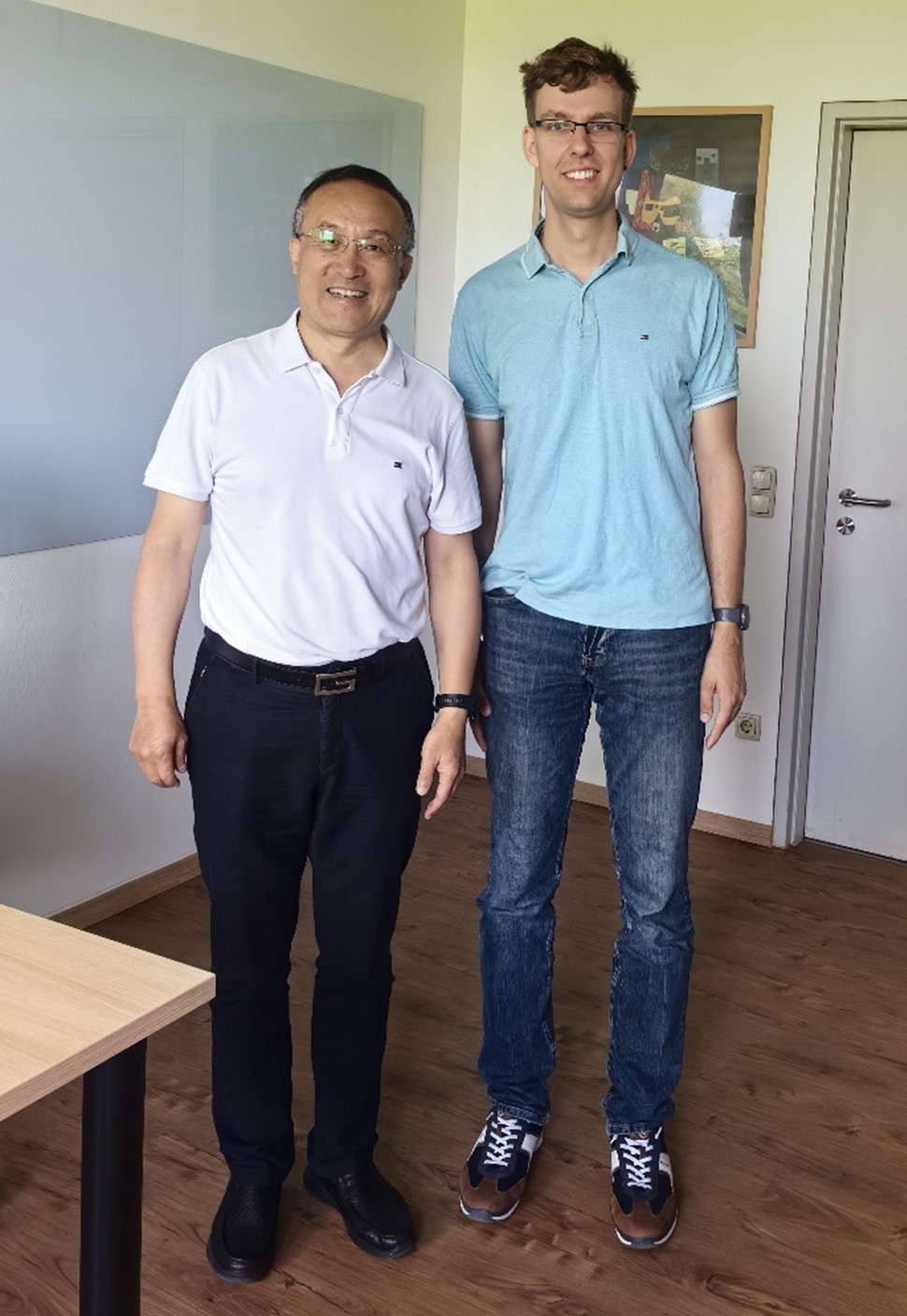
From left to right: Prof. Tao Zhang, Assistant Prof. Max Hülsey.
These meetings facilitated in-depth discussions on potential collaborations in scientific research, academic exchange, and joint training programs. All parties expressed strong interest in further strengthening institutional ties and exploring interdisciplinary research opportunities.
In addition, Prof. Zhang attended the Eurokin Workshop held during the visit, where he presented a keynote talk on "Single-Atom Catalysis." His presentation showcased the latest advancements in the field and drew widespread attention from attending researchers.
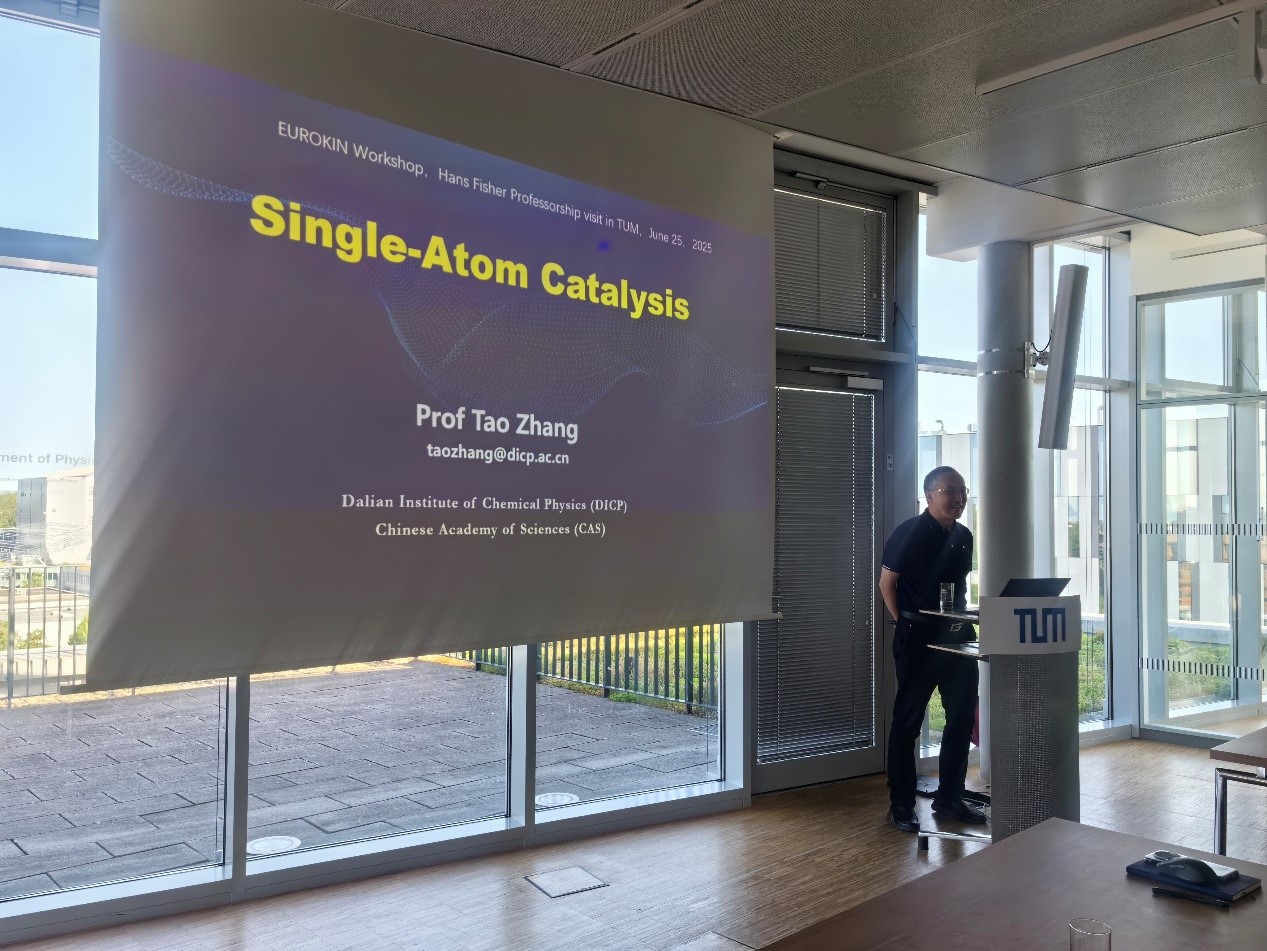
This visit not only deepened the mutual understanding between Prof. Zhang’s research team and TUM colleagues but also laid a solid foundation for future collaboration in catalysis and beyond. (Xiang-Ting Min, Bo Zhang)